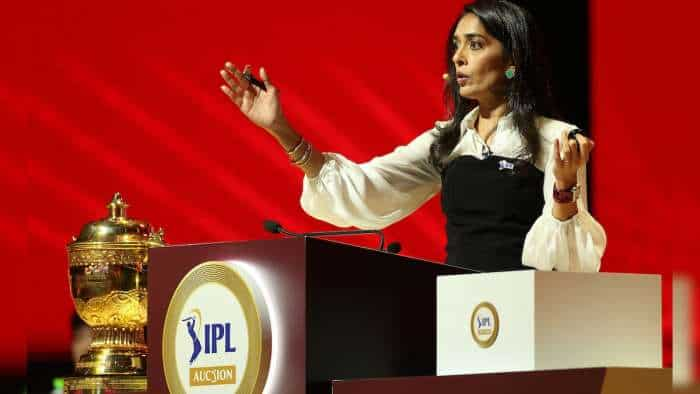Even Rs 40,000 pay ''not'' enough; Credit Karma says 40% millennials spend money they don’t have, get into debt trap
Financial mismanagement is giving sleepless nights to not just the individuals in question, but their HR managers and organisations as well. Often, millennials go into huge amounts of debt due to unclear visions on their finance and spending prowess, say experts.

A monthly take-home of Rs 40, 000 is “not enough’’ for 29-year-old communications specialist Prajwal Menon. His “needs’’ outweigh his income. Menon, who lives as a PG in Bangalore and works for an IT services firm, lives life king-size, travelling by private cabs, eating out at fancy restaurants and ‘’investing’’ in expensive smartphones.
Menon’s is not a unique case, but reflective of the lifestyle of several millennials who score low on the management of their personal finances. A study by Credit Karma shows that 40% millennials spend money they don’t have and go into debt to keep up with their peers.
The fear-of-missing-out (FOMO) on unique experiences and products that their friends have, forces them to shell out more than they can certainly afford.
Financial mismanagement is giving sleepless nights to not just the individuals in question, but their HR managers and organisations as well.
Often, millennials go into huge amounts of debt due to unclear visions on their finance and spending prowess, say experts.
Says Hamsaz Vasunia, Head HR, DCB Bank, “Millennials are short-sighted. They live here and now. For them, the monthly take-home matters more than long-term or annual benefits. Millennials are fairly ambitious about spending. However, they later realise the pressures of repaying credit card bills and loans.”
Worries over money matters can impact an individual’s workplace performance, output and deliverables. “Employees who harbour financial stress tend to be less productive and engaged at work,” says Murali Padmanabhan, Senior VP, Talent Management - India Head, Virtusa Corp.
Thus, although organisations regarded the financial wellness of their employees as something peripheral to individual well-being, “with the passage of time, organisations see this as a core element of overall wellness, alongside community and physiological health. Exclusive financial wellness programmes are needed to make employees aware of the importance of their financial wellbeing,” says Padmanabhan.
According to Kashish Daya Kapoor, general manager-HR, NEC Technologies India, employees should be provided comfort through regular easily digestible financial management information in layman terms.
“They also need support with the right tools and platforms to address their financial wellness. Several millennials say they feel unprepared to manage their finances and need help with managing savings for retirement, general savings, debt management, savings for major expenses like buying a house/car and budgeting. We feel that the scope to develop and take action in this spectrum is major and will help employees deal with the stress related to financial planning. This will, in turn, increase productivity and stability in an organisation.”
NEC Technologies India conducts a yearly financial planning session with employees, says Kapoor.
The company is also exploring options like the pension scheme for employees. “Employees can start it as early as within 5-8 years of entering the corporate world. It is a good tool for investments for retirement savings and the tool is flexible in terms of management of funds and investment options and also carries tax benefits.”
Other corporates like DHFL organise camps where qualified advisors offer support to employees and impart training in financial management. “We also offer long-term wealth creation opportunity programmes for select employees. The process of goal-setting and investment for millennials is an overwhelming task and the sooner one starts, the better it is,” says Rajendra Mehta, Chief People Officer, DHFL.
Virtusa Corp has tied up with Artha Yantra as its financial wellness partner. Padmanabhan says they provide employees with advice across investments, goals, expense, insurance, loans, estate planning and taxes.
“Customised advice by buying all the recommended financial products on one single platform. Tracking and review/rebalance investments to make sure they are aligned with the individual’s financial goals,’’ adds Padmanabhan.
Watch this Zee Business video
Meanwhile, at DCB Bank, emergency loans at 0% interest are offered to help employees get by financial worries like repaying credit card bills and loans.
“This prevents them from trying to make a quick buck through inappropriate means. We are also making a short workshop that will educate employees on managing finances better,” says Vasunia.
Source: DNA Money
Get Latest Business News, Stock Market Updates and Videos; Check your tax outgo through Income Tax Calculator and save money through our Personal Finance coverage. Check Business Breaking News Live on Zee Business Twitter and Facebook. Subscribe on YouTube.
RECOMMENDED STORIES

IPL Auction 2025 Free Live Streaming: When and where to watch Indian Premier League 2025 mega auction live online, on TV, Mobile Apps, and Laptop?

SIP vs PPF: How much corpus you can build in 15 years by investing Rs 1.5 lakh per year? Understand through calculations

SBI Senior Citizen Latest FD Rates: What senior citizens can get on Rs 7 lakh, Rs 14 lakh, and Rs 21 lakh investments in Amrit Vrishti, 1-, 3-, and 5-year fixed deposits
07:28 PM IST








 Wealth Guide: How can life insurance help in tax planning?
Wealth Guide: How can life insurance help in tax planning? Income Tax: How to check your refund, demand status online
Income Tax: How to check your refund, demand status online Here's how you can save taxes on your mutual fund investment
Here's how you can save taxes on your mutual fund investment Want to earn from tax-saving schemes; here's a list where you can invest
Want to earn from tax-saving schemes; here's a list where you can invest Indians most confident about jobs, finances in Q3: Nielsen
Indians most confident about jobs, finances in Q3: Nielsen